The best UPS battery backup for PC gaming
The best UPS, or uninterruptible power supply, will safeguard your PC from unexpected power loss and surges.
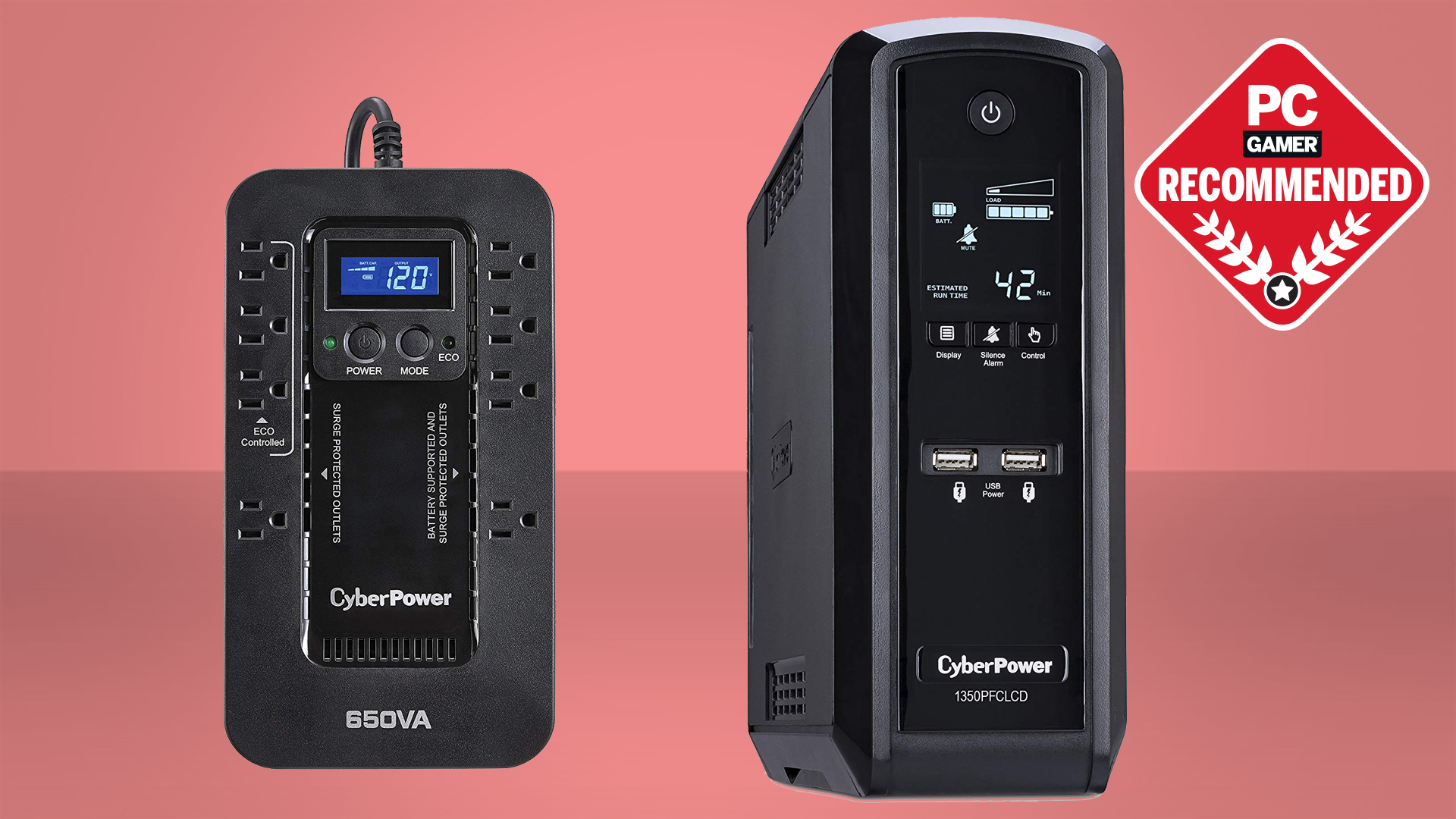
Whether that's a blackout, brownout, or power surge, the best UPS battery backup will give you the time to save what you're doing and turn off your machine safely. Power surges and interruptions can be bad news for PC components, so what you're buying is peace of mind more than anything else.
If you have a high-end gaming PC, pairing it with an uninterrupted power supply as a backup is wise. This protects your precious system from fluctuations in outlet power and acts as a surge protector. A UPS utilizes internal batteries to deliver a steady flow of energy, and a good one will give you plenty of time to save your work or get to a safe point before shutting down your PC safely. Our current favorite is the CyberPower CP1500PFCLCD. It's a bit pricey, but it'll provide plenty of juice for even the most power-hungry gaming PCs going for about 10-20 minutes after you lose power.
The time a UPS gives you to save your game or work will vary, depending on its power draw, and there are other things to consider, too. These aren't personal generators, so you're looking at up to 10-15 minutes max battery runtimes on average. The more devices plugged in, the shorter the runtime. Again it's meant to give you enough time to save your work and shut down your PC safely.
We tested and found each UPS below to deliver precisely what we needed out of what should be an otherwise unremarkable-looking black box. So you can get a better read on which is best for you and your budget.
The best UPS for gaming PCs
PC Gamer's got your back
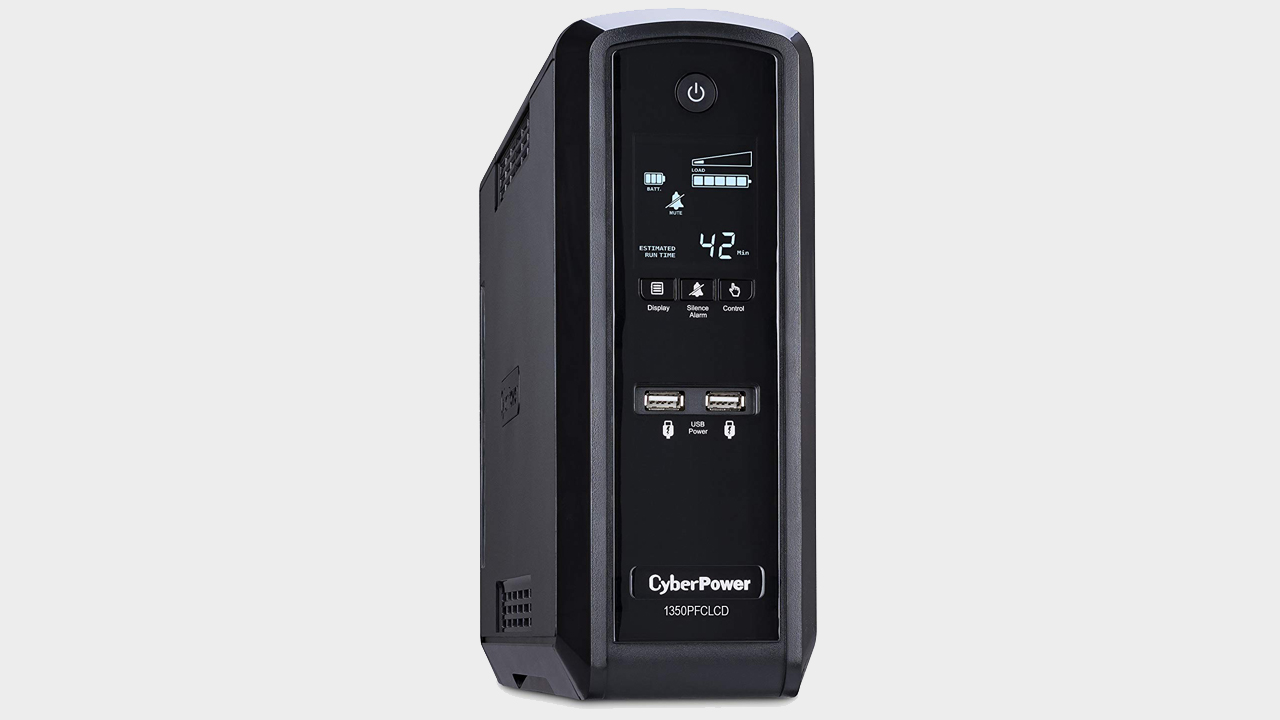
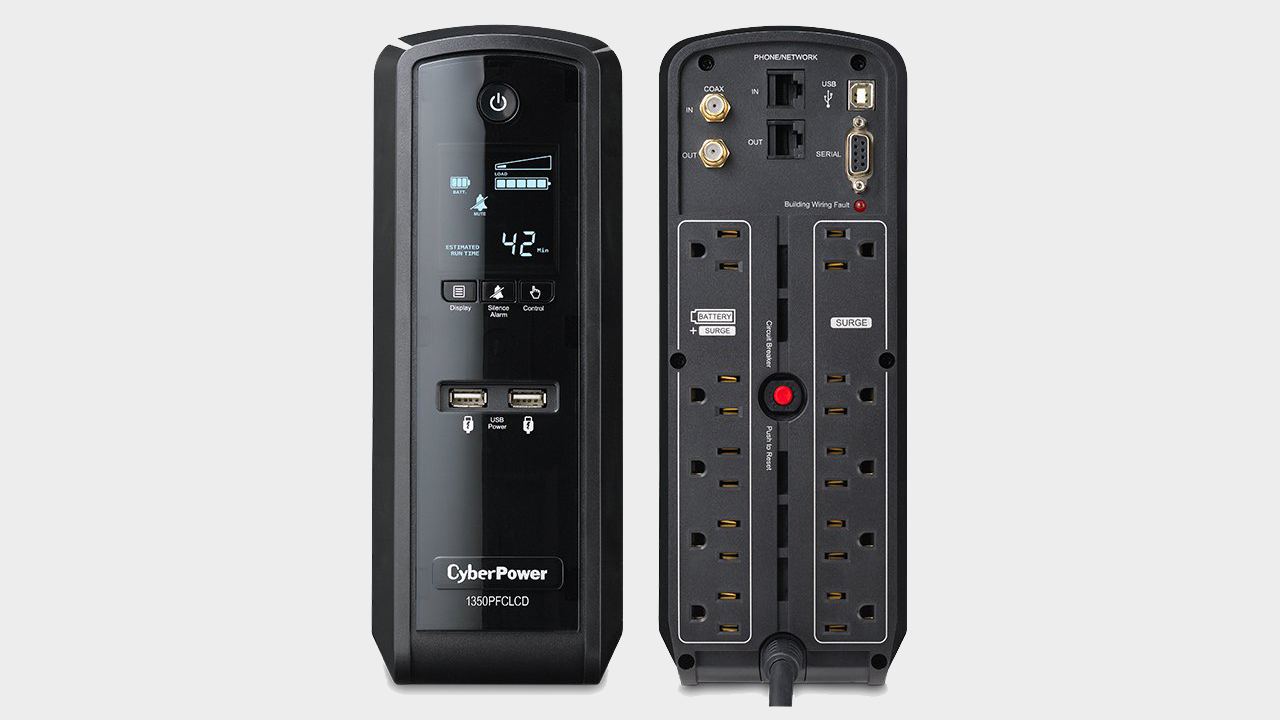
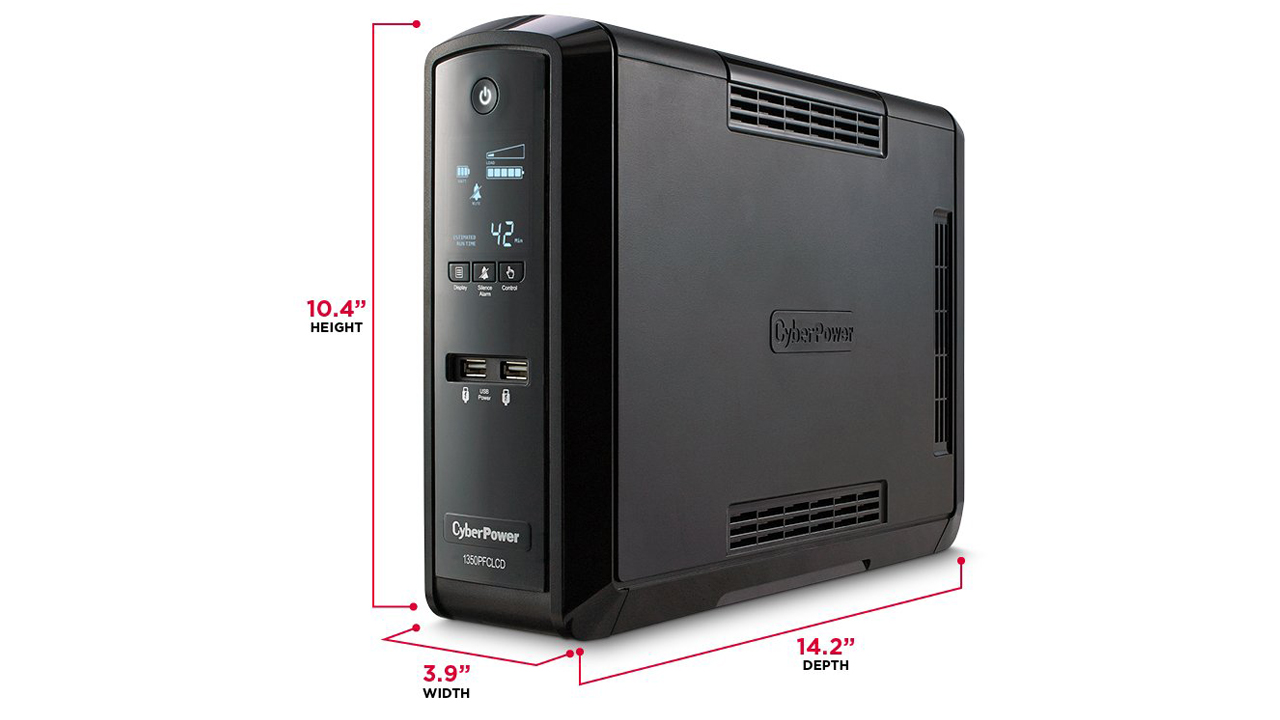
1. CyberPower CP1500PFCLCD
Our expert review:
Specifications
Reasons to buy
Reasons to avoid
The CyberPower CP1500PFCLCD 1500VA is one of the best UPS on the market. Several factors contribute to it being our top pick for most gamers. First, it has enough juice to handle most gaming machines, even if you're running the beefiest of GPUs and an overclocked CPU.
Unless you've got systems with ten hard drives, quad-way GPUs, and other accessories, the CP1500PFCLCD should have enough juice to last 10–20 minutes (longer if you have a more moderate rig) if a power failure occurs.
One of the most critical features of the CP1500PFCLCD is its true sine-wave output. Most UPS backups in their price range only provide sine-wave simulated production, a stepped sine-wave that approximates what you get out of your wall outlet.
Some electronics are sensitive to simulated sine waves and will behave abnormally. At $214, having true sine-wave output is unheard of, so kudos to CyberPower for delivering such a quality output.
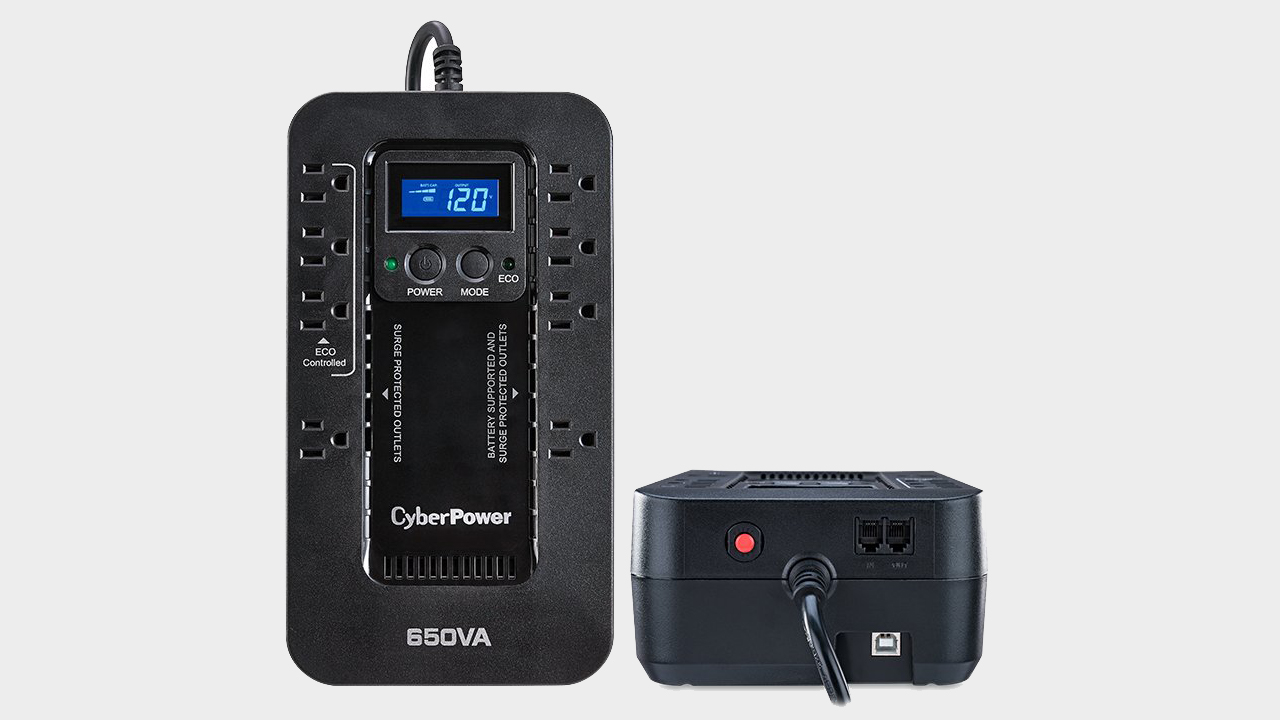
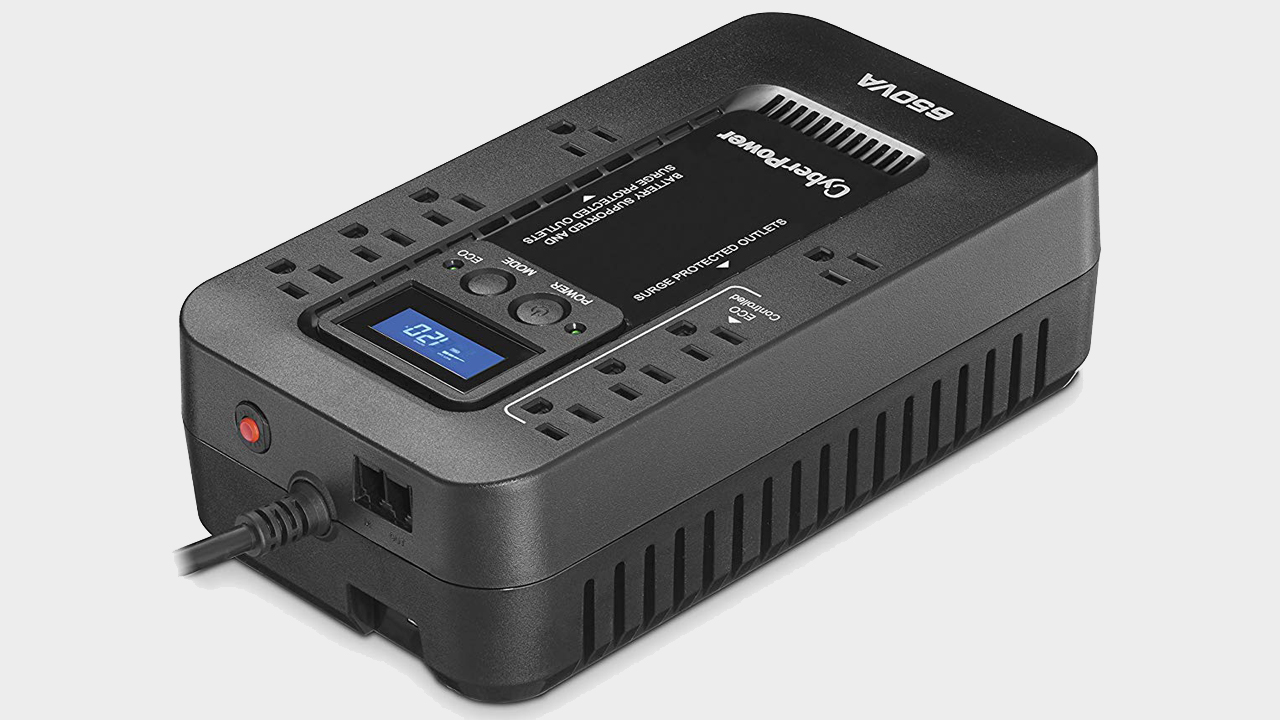
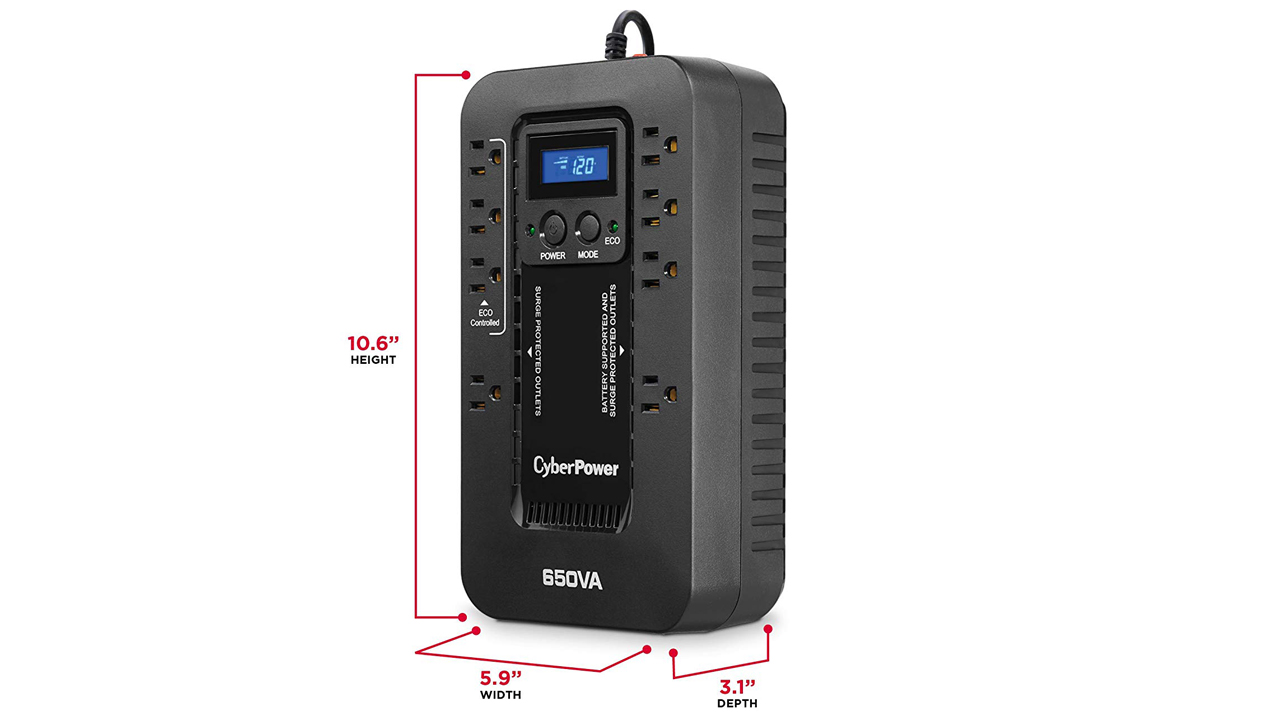
2. CyberPower EC650LCD
Our expert review:
Specifications
Reasons to buy
Reasons to avoid
For smaller accessories and network equipment, the CyberPower EC650LCD is the best pick for most. Coming in at $88 for 390W/650VA, the EC650LCD has enough power reserves to keep the average home network alive for well over 15 minutes, which is enough time to exit your game/applications, save all your work through the network, and shut everything off gracefully during a power outage.
The EC650LCD is small enough to hide away, taking up very little desktop room for a 390W unit. One of my favorite features of the EC650LCD is its array of ECO ports. Depending on your schedule or use case, these ports can be managed and timed to turn on or off. The ECO ports will also power down accessories like speakers and display if your PC is asleep or powered down.
Best gaming PC | Best gaming laptop| Best gaming motherboards | Best SSD for gaming | Best DDR4 RAM | Best PC cases
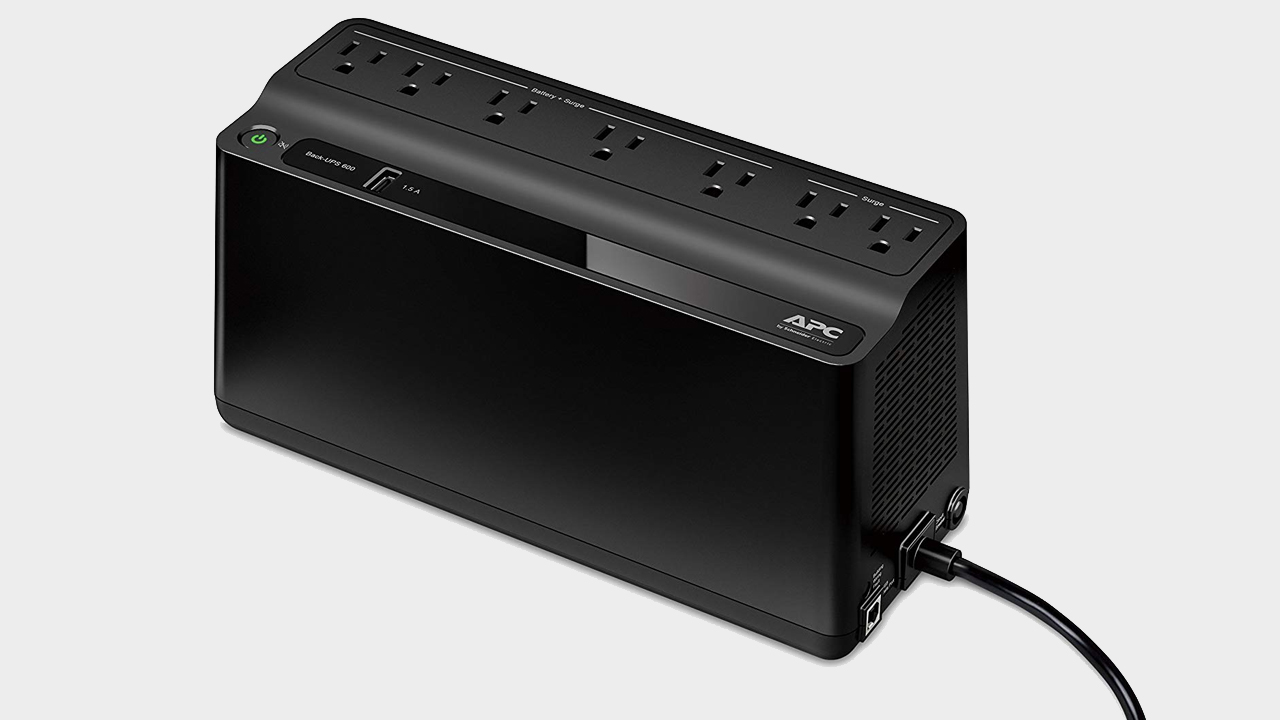
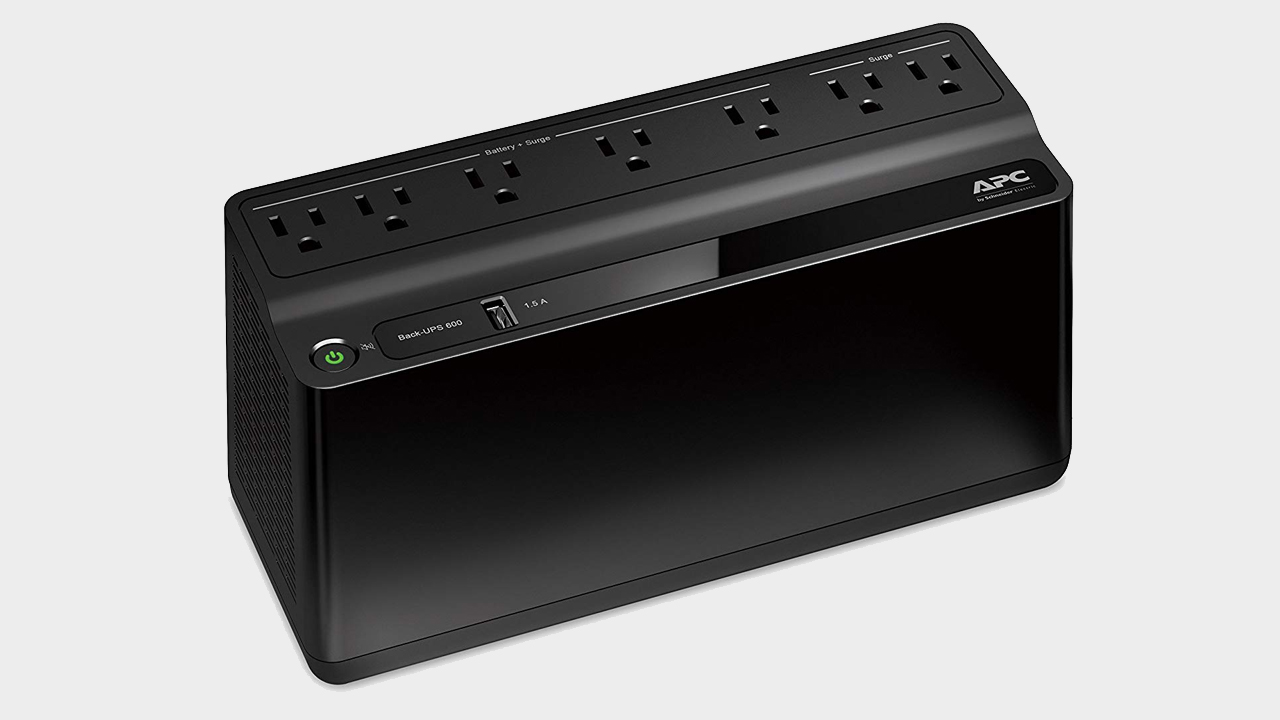
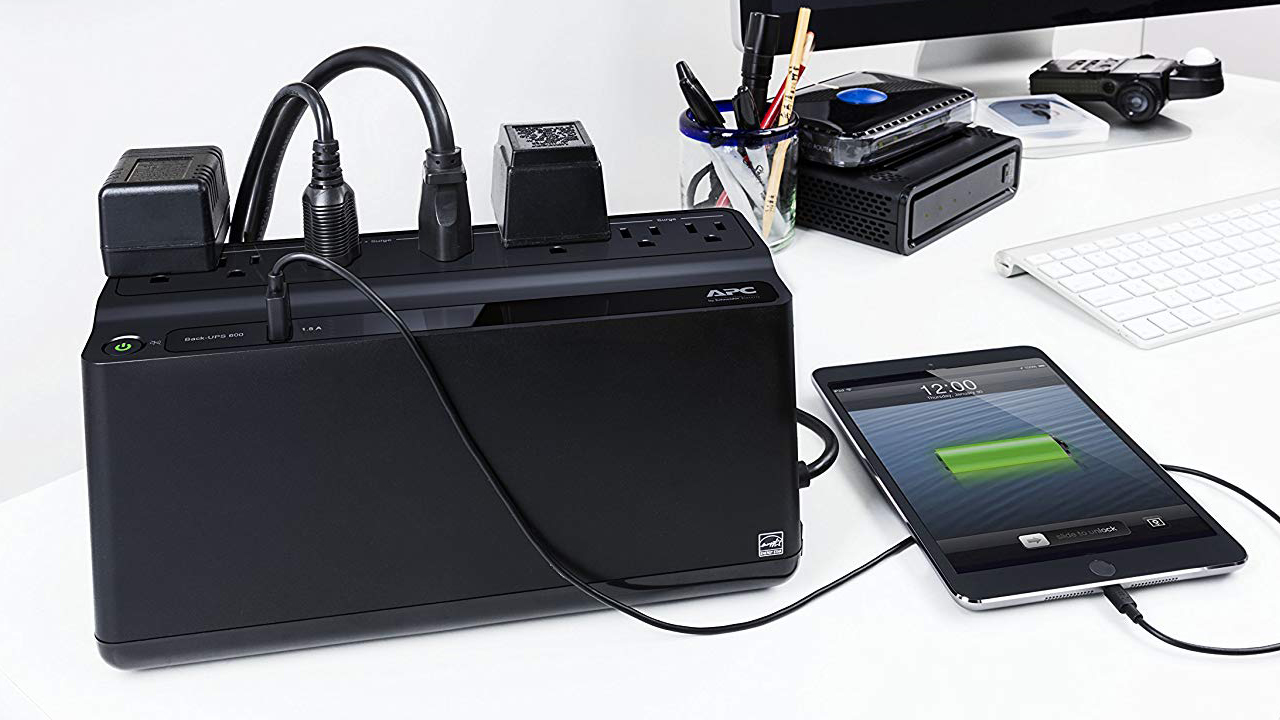
3. APC BE600M1
Our expert review:
Specifications
Reasons to buy
Reasons to avoid
The name APC is synonymous with high-quality UPS. I use three of the company's Smart-UPS professional-level units at home: two 1000VA units for my network and NAS gear and one 1500VA unit for my PC and displays.
APC's BE600M1 is excellent at providing battery and surge protection for the devices you use almost daily. That is your phone and possibly a tablet. However, it has enough power reserves to plug in a router and a single display. If you only plan to use the BE600M1 to power a Wi-Fi router, the unit will have enough juice to let you browse the internet in peace for several hours, even if the electricity in the rest of your house is gone. Priorities.
The best part of the BE600M1 is its size. Most UPS are large and belong on the floor, but APC encourages you to put the BE600M1 on a desk. The unit provides a single 1.5A USB port for charging a phone or tablet, so you don't have to use your device's power adapter, which is inevitably a wall wart that potentially overlaps another socket or two, so you free up sockets for other devices.
The best UPS for PC gaming FAQ
How long will a UPS last?
An uninterruptible power supply that rates 1500VA should run your computer for under an hour. But if you're trying to run your PC and your monitor from it, you're probably looking at more like ten minutes of up-time. A 650VA, at peak load, will maybe net you something in the range of seven minutes, though that is obviously with a far lower peak wattage.
What type of UPS should I buy?
There are two types of uninterruptible power supply to look out for when shopping around for your gaming PC: sine-wave and simulated sine-wave.
Sine-wave UPS backups deliver a smooth, consistent oscillation of AC power directly to your PSU. Due to their efficiency and clean power delivery, these are often the only type of UPS recommended for gaming PCs.
What's the difference between sine-wave and simulated sine-wave UPS?
A pure sine-wave signal will be a match for the AC mains power your PSU is expected from your mains. Essentially, your PC shouldn't know the difference between your UPS battery power and the power coming from the wall.
Simulated sine-wave UPS delivers a stepped, approximated waveform using pulse-width modulation (PWM). That's the same concept used to control PC case fan RPM. These are often far less expensive than pure sine-wave UPS and can be useful for peripherals, small devices, and monitors. However, since the waveform is not always exact, these may not function as intended with PSUs that demand a stable and consistent input.
When your UPS detects a power surge or cut, it will switch to battery power. How it delivers that battery power to your PC or accessories is when sine-wave versus simulated sine-wave matters most. That's because some PSUs will actually recognize a simulated sine-wave frequency and shut down suddenly to protect themselves from the unexpected oddity in power. Thus, your UPS won't be saving your PC from losing power.
Keep up to date with the most important stories and the best deals, as picked by the PC Gamer team.

Dave has been gaming since the days of Zaxxon and Lady Bug on the Colecovision, and code books for the Commodore Vic 20 (Death Race 2000!). He built his first gaming PC at the tender age of 16, and finally finished bug-fixing the Cyrix-based system around a year later. When he dropped it out of the window. He first started writing for Official PlayStation Magazine and Xbox World many decades ago, then moved onto PC Format full-time, then PC Gamer, TechRadar, and T3 among others. Now he's back, writing about the nightmarish graphics card market, CPUs with more cores than sense, gaming laptops hotter than the sun, and SSDs more capacious than a Cybertruck.

